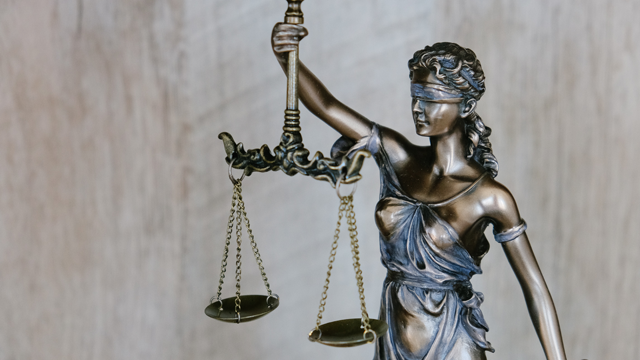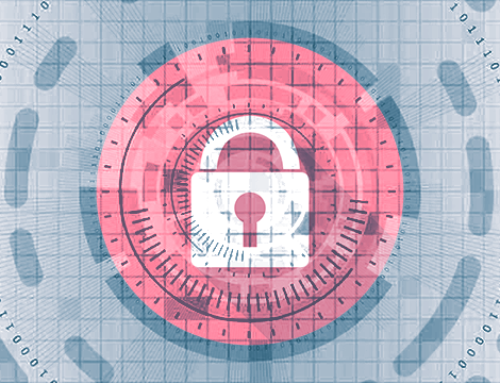Blockchain technology is a hot topic. Worldwide spending on blockchain initiatives is expected to triple to over $14 billion by 2023. The legal industry is a sector especially prone to disruption by this trend. Legal professionals should inform themselves of the implications to stay ahead of the curve and reap the benefits of this game-changing technology.
A true disruptor
The legal industry is a notorious slow mover when it comes to technological adoption. While practices such as automated billing, digital document storage, and the use of accounting software are all commonplace today, you will still find plenty of good, old-fashioned paper documents in any law firm.
In the case of blockchain, however, slow-adopters may find themselves suddenly uncompetitive. That’s because the technology has many important benefits that could transform how the industry operates. But first, a quick introduction to the main concepts.
What is blockchain, exactly?
Many legal professionals have heard the term but may not understand what blockchain technology actually does. It’s okay, you’re busy folk.
So, your 22-year old nephew drives a nicer car than you since he struck it rich in the Bitcoin game a few years ago. That’s blockchain, right? Yes, blockchain technology powers cryptocurrencies such as Bitcoin, but it is so much more than that.
A blockchain is a category of Distributed Ledger Technology. It can record transactional information in a way that cannot be altered. These transactions are verified by individual computers called nodes on a decentralized network.
Transaction data is stored on “blocks”, which, when verified, are pooled and added to a “chain” of previous blocks. Each block has a unique, cryptographic alphanumeric “hash” assigned to it. A block contains its hash and the hash of the previous block.
Once a block is on the chain, information within the block can’t be changed. If there are any alterations, the unique hash changes, which changes all subsequent hashes up the chain, breaking it. The blockchain is carried by all of the nodes in a given network. This means if a single node is hacked to alter a transaction, all of the other nodes see it as invalid and the changed blockchain is voided.
This makes a blockchain a very secure way to register transactions. But, how could it apply to the legal industry?
Benefits to the legal industry
There are two main benefits to integrating blockchain into your Legal Tech strategy: cost reduction and increased data integrity.
The savings possible through the use of blockchain technology is enormous. Blockchain can automate many tedious legal procedures. Smart contracts and digital signatures could be used to reduce the amount of manual paperwork that needs to be filled. This alone would save money on paralegals and low-skill labor you typically have to bill your clients.
This increases accessibility to the legal system. Lower-income people can afford to become clients when they aren’t charged for the mundane aspects that chew up a significant amount of time. Lawyers can either charge less or receive better margins, depending on their goals. A firm that can charge lower prices and save time for their clients would have a major competitive advantage in the marketplace.
Superior data integrity is the other important benefit. Legal files are some of the most sought-after data targeted by hackers. Files are typically not stored on a blockchain, as the blocks tend to hold relatively small amounts of data. However, transactional info about where and to whom the files were sent can be stored on the blockchain. This allows for undeniable chain-of-custody verification. Remember, data on a blockchain can’t be altered without the malicious agent gaining control of the majority of the nodes on the network. With hundreds or even thousands of nodes, this becomes impractical. Therefore blockchain becomes an essential tool for confidential contracts or digital evidence sequestration.
The power of smart contracts
While smart contracts have been mentioned as important, you may not understand the term. It’s an important concept when analyzing blockchain’s effect on the legal profession.
Legal professionals are obviously familiar with standard contracts. Perhaps Party A agrees to buy certain property from Party B, if certain conditions are met by Party B before a specific time. Traditionally, this transaction could take days or weeks to complete. Smart contracts aim to reduce the transactional friction.
A smart contract is a piece of code integrated into a blockchain that holds all the necessary conditions for a potential transaction. Once these conditions are met by both parties, the smart contract executes and the transaction is made. Essentially, they automate the agreement without the need for human verification. And, since it takes place on the blockchain, it is not able to be reversed.
While smart contracts won’t completely erase the need for traditional legal contracts, they could disrupt business-as-usual. If future regulation confirms smart contracts are legally binding documents, lawyers will need to inform themselves about the technology and integrate it into their offerings.
Interesting potential use-cases
Presently, it’s a real Wild West out there regarding blockchain and the legal industry. While there are a few scattered firms accepting cryptocurrency as payment, the wide adoption of blockchain technology still lags. Regulatory uncertainty and the overall inertia against the adoption of new technology have contributed to this reluctance. Dig a bit deeper into the untapped possibilities, however, and you’ll find some very exciting applications.
Blockchain could disrupt the field of IP (Intellectual Property) law. Through the use of non-fungible tokens, unique work or property can be represented and timestamped on an immutable ledger. This would go a long way toward clearing up IP disputes between parties. It would be an irrefutable way to prove ownership.
As previously mentioned, another useful application is related to chain-of-custody. This term refers to how evidence in a legal proceeding is handled from point A to point B. Blockchains could prevent tampering, as every piece of evidence would have to be logged in the ledger. It closes many weak points throughout the chain and inconsistencies would be spotted immediately.
Property law could also transform due to blockchain technology. It’s one of the areas where a reduction in paperwork and intermediaries would lower transaction costs substantially. Once widely available, it’s difficult to imagine the majority of clients opting for the more manual version.
Additionally, Blockchain could be used to host public documents and process Freedom of Information Act (FOIA) requests. Attorneys in need of a theoretically public document can find themselves waiting for months or years! If these documents were all put on a blockchain, there would be no worry about manipulation or hacking. The public could search for the necessary information without the need of a meandering bureaucrat to pour through what can only be imagined as an Indiana Jones-esque secret warehouse of long-forgotten files.
Then there’s the burgeoning market for blockchain-savvy lawyers. In case you hadn’t noticed, blockchain is big business these days (your nephew’s Porsche is proof enough). Businesses and consumers alike need legal assistance on cryptocurrency holdings, smart contracts, digital IP, and all else blockchain. It’s an entirely new field where those truly invested will be able to make a name for themselves and flourish.
Hopefully, you now see how blockchain is poised to change the legal industry forever. Even If your firm is not planning to work with any blockchain-related clients, it would be good to investigate its practical usefulness. And, with the technology becoming more ubiquitous, you may even be presented with blockchain legal scenarios from current clients in the near future. Don’t get caught unaware.
A secure solution for your sensitive information
Few professions require the file privacy lawyers do. Those in the legal industry need solutions that ensure their documents are accessible and secure.
AXEL is at the forefront of the data security movement. Our revolutionary file-sharing platform, AXEL Go, is the perfect application for legal professionals. AXEL Go is an intuitive file-sharing program backed by blockchain technology. Files aren’t housed in a central location. Instead, they’re divided into many pieces and distributed to our verified network of nodes. This, combined with our optional AES-256 password encryptions guarantees privacy. Keep your sensitive data out of the hands of malicious agents with the help of AXEL Go. Download it today and receive 2GB of free storage.


